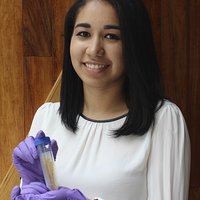Biotechnology & medicine
Linxian Li
His research provides innovative tools to accelerate the development of novel biomaterials for global healthcare challenges

Europe
Andreas Lautsen
No snake bites will be lethal thanks to the anti-venoms he has developed based on human antibodies

Latin America
Norma Elizabeth Martínez
Her smart cover detects septicemia immediately and aims to identify the bacteria causing the infection to accelerate treatments

India
Vinay Kumar
A single device that can diagnose multiple parameters related to diabetes management

Europe
Habib Frost
Improving the treatment of heart attacks and internal bleeding in hospitals through his computer-controlled catheter
